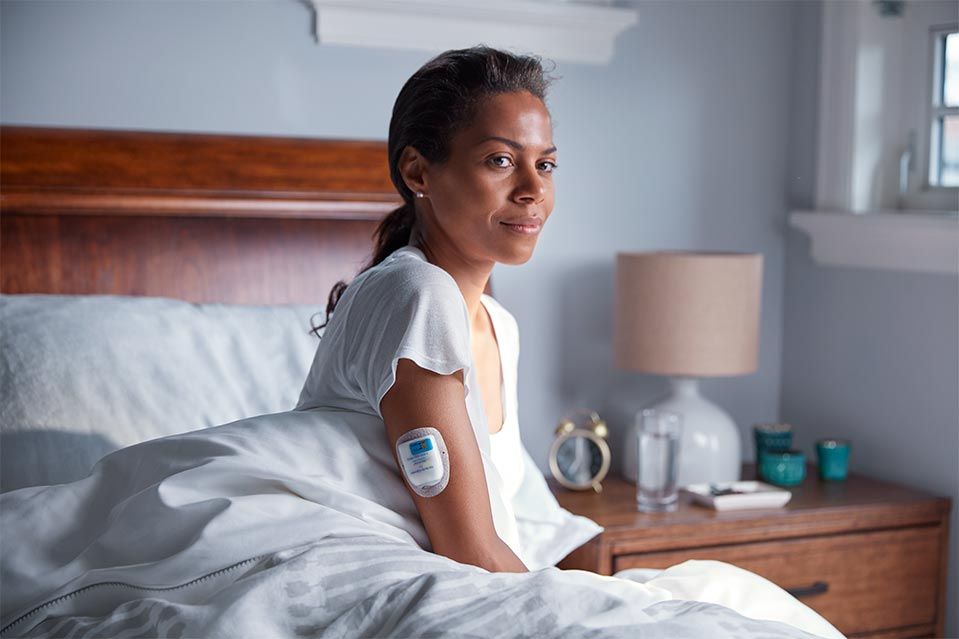- Bone Health
- Immunology
- Hematology
- Respiratory
- Dermatology
- Diabetes
- Gastroenterology
- Neurology
- Oncology
- Ophthalmology
- Rare Disease
- Rheumatology
BLA Resubmitted to FDA for On-Body Injector Presentation of Pegfilgrastim-cbqv
The biologics license application (BLA) seeking the approval of the on-body injector presentation of pegfilgrastim-cbqv, a biosimilar of Neulasta Onpro, has been resubmitted to the FDA for review.
Neulasta Onpro is the on-body injector version of Neulasta (reference pegfilgrastim). After Coherus Biosciences received a complete response letter for its Neulasta Onpro biosimilar, it has officially resubmitted for approval.

The biologics license application (BLA) seeking the approval of the on-body injector (OBI) presentation of pegfilgrastim-cbqv (Udenyca), a biosimilar of pegfilgrastim (Neulasta), has been resubmitted to the FDA for review.1
In September 2023, the regulatory agency issued a complete response letter to the BLA due to an ongoing review of inspection findings at a third-party filler.2 No issues pertaining to the safety, efficacy, trial design, labeling, drug substance manufacturing, or device design or manufacturing were noted, and no additional data or clinical trials were requested.
The resubmission follows the completion and satisfactory resolution of the agency’s review, according to a press release issued by Coherus BioSciences, Inc., the drug developer.1
“We are pleased that resolution of the FDA’s inspection findings has enabled our rapid resubmission of the Udenyca OnBody BLA supplement,” Theresa LaVallee, PhD, chief development officer at Coherus, stated in a press release. “As the CRL identified no other issues with the BLA supplement, we look forward to working closely with the agency to complete the review of the Udenyca OnBody application in a timely manner and anticipate potential approval later this year.”
According to Amgen, sales of originator Neulasta has been declining due to the market introduction of pegfilgrastim biosimilars. However, shares of Neulasta Onpro, the OBI version of Neulasta, have been steady, achieving 58% of the pegfilgrastim market share during the second quarter of 2020.
In March 2023, the FDA approved a single-dose prefilled autoinjector presentation of pegfilgrastim-cbqv to be given the day after chemotherapy to reduce the incidence of infection as manifested by febrile neutropenia.3 The approval was based on findings included in a comprehensive analytical data package as well as a study that assessed the pharmacokinetics, pharmacodynamics, and immunogenicity of the product.
Investigators evaluated safety findings from patients who received pegfilgrastim spanning 7 randomized clinical trials (n = 932).4 In a double-blind, placebo-controlled study, patients with metastatic or nonmetastatic breast cancer who were receiving docetaxel at 100 mg/m2 every 21 days (n = 928) were randomized to pegfilgrastim at 6 mg (n = 467) or placebo (n = 461).
These patients were between the ages of 21 years and 88 years; 99% were female and 66% were Caucasian. The most frequently experienced toxicities in the pegfilgrastim arm vs the placebo arm included bone pain (31% vs 26%) and pain in the extremity (4% vs 9%). Leukocytosis was observed in less than 1% of all patients with non-myeloid malignancies who received pegfilgrastim.
Moreover, an open-label, crossover study enrolled a total of 189 patients who were randomized 1:1 to receive 1 of 2 treatment sequences of the biosimilar: pegfilgrastim-cbqv administered via the OBI device followed by prefilled syringe administration, or the reverse, with a treatment interval of 6 to 8 weeks.5 In October 2021, it was announced that the trial met all pharmacokinetic bioequivalence primary end points and a key pharmacodynamic secondary end point of absolute neutrophil count. No new safety signals were observed.
“Coherus appreciates the great collaboration with our third-party manufacturer and the swift and comprehensive actions taken to address the inspectional issues raised by the agency,” Rich Hameister, chief technical officer at Coherus, added in the press release.1 “We are all focused on bringing this excellent product to patients as quickly as possible.”
References
- Coherus announces resubmission of biologics license application (BLA) supplement for Udenyca OnBody. News release. Coherus BioSciences, Inc. October 5, 2023. Accessed October 5, 2023. https://investors.coherus.com/news-releases/news-release-details/coherus-announces-resubmission-biologics-license-application-bla
- FDA issues complete response letter (CRL) for Udenyca OnBody biologics license application solely due to an ongoing review of inspection findings at a third-party filler; Coherus also announces completion of toripalimab FDA inspections. News release. Coherus Biosciences, Inc. September 25, 2023. Accessed October 5, 2023. https://investors.coherus.com/news-releases/news-release-details/fda-issues-complete-response-letter-crl-udenycar-onbodytm
- FDA approves Udenyca autoinjector. News release. Coherus Biosciences, Inc. March 6, 2023. Accessed October 5, 2023. https://investors.coherus.com/news-releases/news-release-details/fda-approves-udenycar-autoinjector
- Udenyca (pegfilgrastim-cbqv). Prescribing information; Coherus Biosciences, Inc. Updated March 2023. Accessed October 5, 2023. https://udenyca.com/hcp/wp-content/pdfs/udenyca-pi.pdf
- Coherus announces positive results of Udenyca on-body injector clinical trial. News release. Coherus Biosciences, Inc. October 5, 2021. Accessed October 5, 2023. https://investors.coherus.com/news-releases/news-release-details/coherus-announces-positive-results-udenycar-body-injector
Newsletter
Where clinical, regulatory, and economic perspectives converge—sign up for Center for Biosimilars® emails to get expert insights on emerging treatment paradigms, biosimilar policy, and real-world outcomes that shape patient care.
